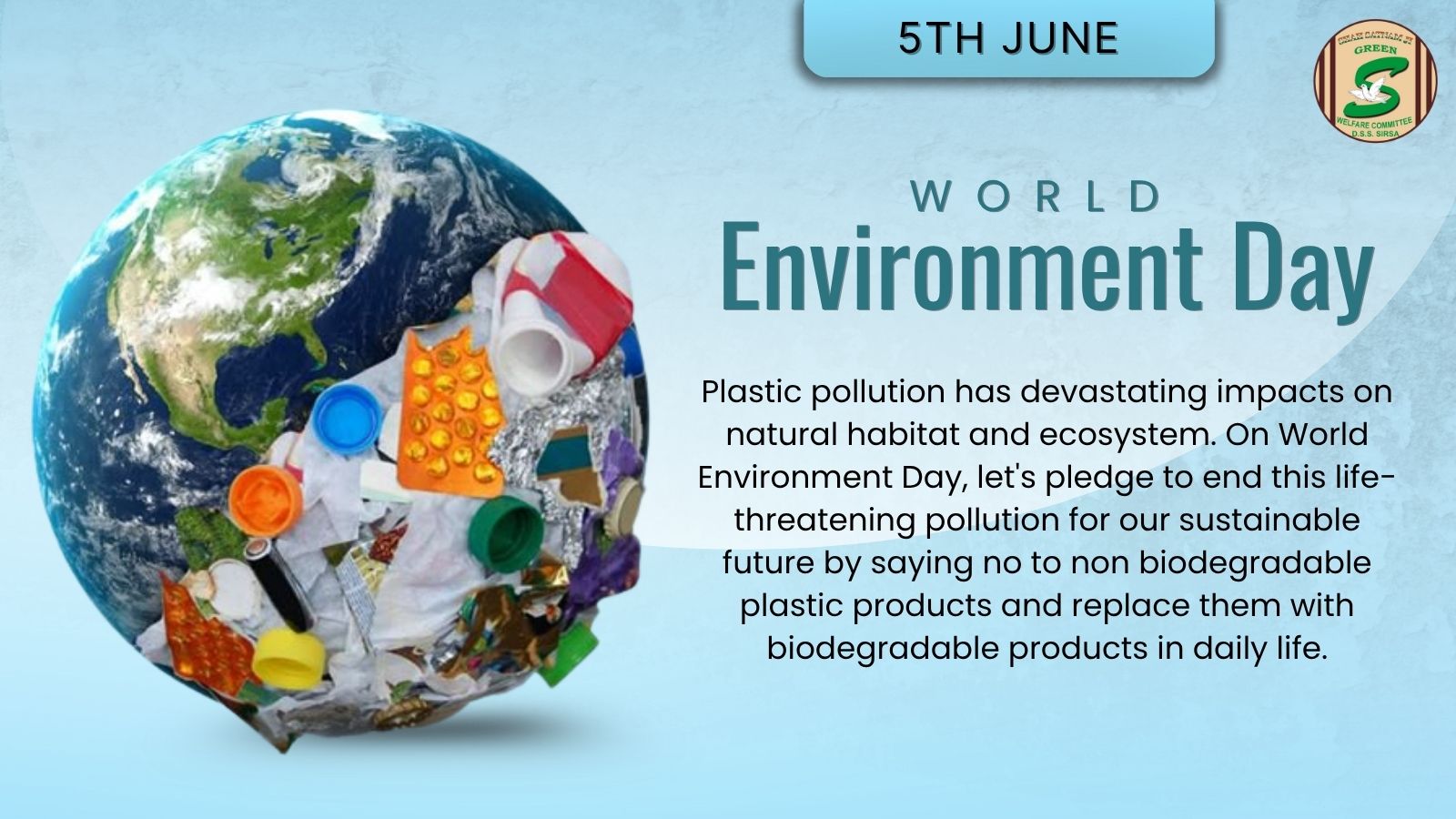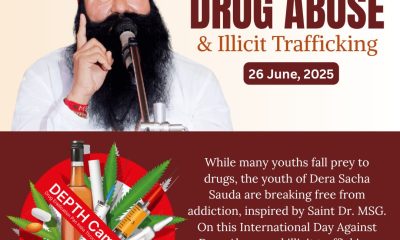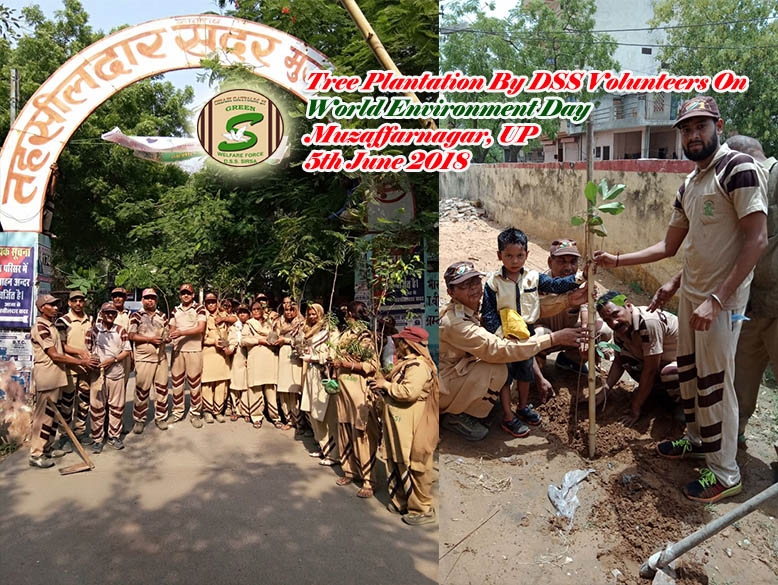
The theme “Ending Global Plastic Pollution” shines a spotlight on the pressing issue of plastic waste, including microplastics. The plastic dump has created a crisis that’s impossible to ignore any longer. We’ve known about the harmful effects of plastic for a long time, and its consequences are evident every day. Yet, paradoxically, we continue to use it without much thought. On the surface, plastic pollution might seem like a mere aesthetic issue, making cities look dirty. However, its impact is far more devastating than meets the eye.
History Of World Environment Day
World Environment Day, held annually on June 5th, was established by the United Nations in 1972 during the Stockholm Conference on the Human Environment. The conference, which lasted from June 5th to 16th, focused on the interactions between humans and the environment. The first World Environment Day was celebrated in 1973, with the theme “Only One Earth”,and it has since become the largest global environmental outreach platform.
World Environment Day in 2025 will focus on ending plastic pollution. The Republic of Korea will host the global celebrations.
The Impact of Microplastics
Environmental Impact
- Pollution: Plastics contribute to pollution in oceans, rivers, and landscapes.
- Climate Change: Plastic production and disposal contribute to greenhouse gas emissions.
- Wildlife Harm: Plastics harm wildlife through entanglement, suffocation, and ingestion.
Wildlife Impact
- Marine Life: Plastic pollution affects marine life, including sea turtles, fishes, and birds.
- Entanglement: Animals get entangled in plastic debris, causing injury or death.
- Ingestion: Animals ingest plastic, which can block digestive tracts or cause toxicity.
Human Health Impact
- Chemical Exposure: Plastics contain chemicals like BPA and phthalates, which can leach into food and water.
- Microplastics: Microplastics have been found in human food and water, with potential health risks.
- Toxicity: Exposure to plastic chemicals has been linked to various health problems.
Economic Impact
- Marine Industries: Plastic pollution affects the fishing and tourism industries.
- Waste Management: Plastic waste management is a significant economic burden. Its disposal and management are difficult owing to its non-biodegradable nature.
- Loss of Biodiversity: Plastic pollution contributes to loss of biodiversity, affecting ecosystems
The Role of Individual Actions
Individuals can make a significant impact by making simple changes in their daily lives. Some examples include:
- Reducing single-use plastics: Avoid plastic bags, straws, and water bottles.
- Using reusable alternatives: Opt for cloth bags, stainless steel water bottles, and metal or bamboo straws.
- Recycling: Properly recycling plastic waste to reduce the amount of plastic that ends up in landfills and oceans.
- Choosing products with minimal packaging: Selecting products with minimal or biodegradable packaging.
The Importance of Policy Changes
Governments and corporations can play a crucial role in reducing plastic waste. Some potential policy changes include:
- Implementing plastic bag bans: Prohibiting the use of single-use plastic bags.
- Enacting extended producer responsibility: Holding manufacturers responsible for the waste generated by their products.
- Increasing recycling infrastructure: Investing in recycling facilities and programs to improve recycling rates.
- Promoting sustainable packaging: Encouraging the use of biodegradable or reusable packaging materials.
Innovative Solutions
Numerous innovative solutions are being developed to address the issue of plastic pollution. Some examples include:
- Biodegradable plastics: Developing plastics that can break down naturally in the environment.
- Plastic-eating enzymes: Discovering enzymes that can break down plastic waste.
- Recycling technologies: Developing new technologies to improve recycling rates and quality.
- Circular economy models: Designing systems where materials are constantly cycled back into production, reducing waste.
- Support plastic-free initiatives: Promote organizations and initiatives working to reduce plastic waste.
- Participate in beach cleanups: Organize or participate in local beach cleanups.
- Educate others: Share information about plastic pollution and its effects.
Dera Sacha Sauda’s high-impact role in conserving the environment
Dera Sacha Sauda is a Socio-Spiritual Organization with over 70 million followers all around the world.
Through the teachings of Saint Dr. Gurmeet Ram Rahim Singh Ji Insan, the Green ‘S’ Welfare Committee has been actively working on environmental sustainability, including efforts to combat plastic pollution. Their initiatives include distributing cloth bags, encouraging the use of reusable containers, and promoting the reuse of materials like plastic bottles for planting saplings. They also conduct awareness campaigns and engage in cleanliness drives to reduce plastic waste and promote a pollution-free environment.
Dera Sacha Sauda’s efforts in combating plastic pollution include:
- Distributing Cloth Bags: Volunteers actively distribute cloth bags to discourage the use of polythene bags, aligning with Saint Dr. MSG’s teachings on sustainability.
- “Bye Bye Ethene” campaign, which encourages the use of cloth bags or jute bags instead of plastic bags.
- Reusable Containers: They promote the use of reusable containers for carrying food and beverages, reducing plastic waste.
- Plastic Bottle Reuse: Plastic bottles are repurposed for planting saplings, turning waste into a resource, and contributing to greening efforts.
- Cleanliness Campaigns: They organize cleanliness campaigns to remove plastic litter and maintain a clean environment.
- Awareness Campaigns: Volunteers conduct awareness programs to educate the public about the harmful effects of plastic pollution and the importance of reducing waste.
- Planting Trees: They engage in tree-planting initiatives to increase green cover and mitigate the effects of plastic pollution.
Conclusion
On World Environment Conservation Day, we recognize the critical need to address plastic pollution. By making conscious choices, supporting sustainable practices, and promoting eco-friendly policies, we can mitigate the harm caused by plastic waste and protect our planet’s precious resources. Let’s join hands, say ‘No’ to plastic, and work towards ending the plastic pollution to save our environment and our planet.













